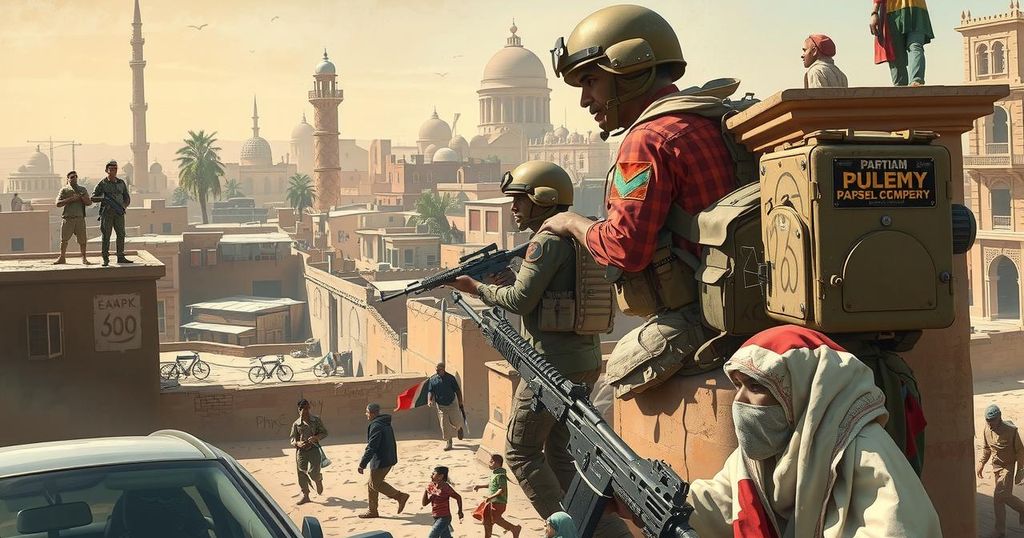Recent Developments in Sudan’s Civil War and Their Implications
The civil war in Sudan has intensified with significant victories by the Sudanese army in Khartoum, including the recapture of the airport and presidential palace from the Rapid Support Forces, reflecting a critical moment in the ongoing conflict. Despite these developments, the war is far from over, with increasing violence and humanitarian crises affecting millions. Experts warn of potential partition as both sides remain entrenched in their positions.
Sudan’s civil war continues to escalate, particularly in the capital, Khartoum, where the Sudanese Armed Forces (SAF) have recently claimed significant victories against the Rapid Support Forces (RSF). As the conflict nears its two-year mark, the SAF recaptured the airport and the presidential palace, both previously held by the RSF, prompting hopes of a shift in operational momentum. However, the struggle is ongoing, and territorial integrity is at risk as both factions solidify their control.
The SAF’s recent achievements were highlighted by army chief Abdel Fattah al-Burhan’s declaration of Khartoum’s liberation from RSF control. The airport’s recapture disrupted RSF’s supply lines and their media portrayal as a power challenger. Additionally, the army’s regained control of the capital is expected to influence international perceptions and provide leverage for future negotiations, despite the ongoing refusal to engage in talks.
Despite recent advancements, the conflict remains unresolved, with continued aggression from both the SAF and RSF across expansive territories, including Darfur and Kordofan. As retaliatory air strikes increase, civilian casualties mount, and humanitarian conditions deteriorate drastically. Volker Turk, the UN High Commissioner for Human Rights, expressed alarm over civilian casualties from recent attacks, highlighting the human cost of the conflict.
The humanitarian crisis in Sudan exacerbates the ongoing conflict. Displacement affects over 12 million individuals, and severe food shortages leave nearly 25 million people in dire need. Conditions are especially grave in Darfur, where famine has begun to surface. Both factions have hindered aid distribution, further complicating humanitarian efforts. The health infrastructure has been decimated, leaving millions without essential care.
Looking ahead, experts warn that Sudan’s situation may lead to partition or de facto fragmentation. Following the RSF’s formation of a breakaway government, concerns have been raised about the long-term implications for the region. The most probable outcome appears to be a protracted conflict marked by attrition, as both sides remain unwilling to compromise amidst international calls for renewed dialogue.
In conclusion, the civil war in Sudan, marked by recent military victories in Khartoum, demonstrates an ongoing and complex conflict with no immediate resolution in sight. The humanitarian ramifications are severe, exacerbated by continued fighting and territorial disputes. The future remains uncertain as both the SAF and RSF hold onto power, with the potential for further fragmentation looming. Without a willingness to negotiate, the situation is likely to persist with devastating consequences for the population.
Original Source: www.aljazeera.com




Post Comment